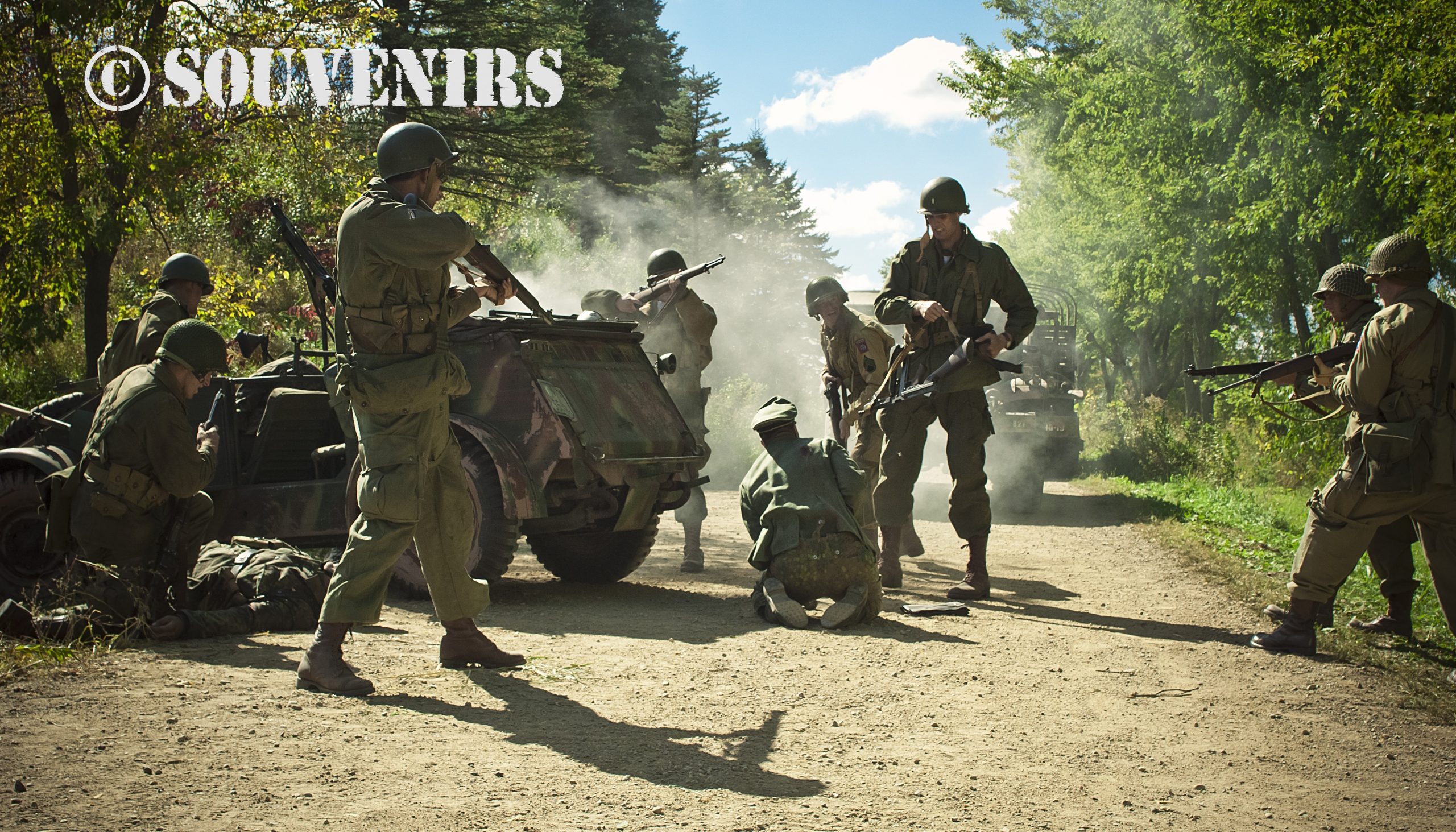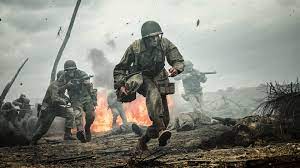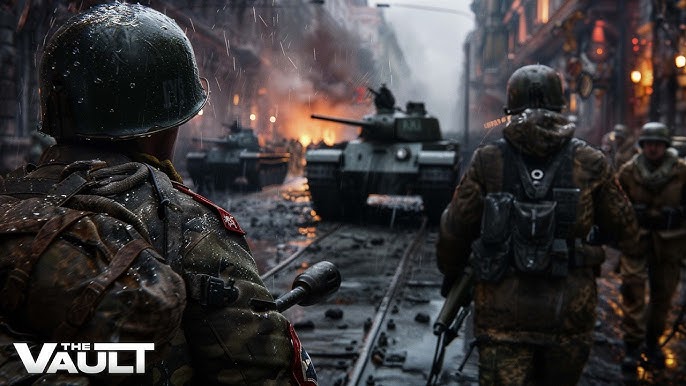🎬 Memorial Day (2011)

Memorial Day (2011) Movie Review: A Heartfelt Tribute to Heroism and Sacrifice
Introduction: A Powerful War Drama with Emotional Depth
“Memorial Day” (2011), directed by Samuel Fischer, is a war drama that explores themes of sacrifice, bravery, and the emotional toll of combat. Set against the backdrop of World War II, the film intertwines the story of a young boy, his journey of self-discovery, and the legacy of a fallen soldier. Starring James Cromwell, Jonathan Bennett, and Alexa Vega, Memorial Day provides an intimate, poignant look at the impact of war on both the soldiers who fight in it and the families they leave behind. With a story that blends past and present, the film presents a moving tribute to the men and women who have served in the military, particularly during wartime.
Plot Summary: The Legacy of a Soldier
The plot of Memorial Day centers on a young boy named Jack (Jonathan Bennett), who, during a summer spent with his grandfather, learns about the sacrifice and heroism of his late father, a World War II soldier. Jack, who is struggling with the recent loss of his father, comes across a box of his father’s personal effects and begins to piece together the story of his father’s heroic actions during the war.
As Jack’s grandfather, played by the legendary James Cromwell, recounts the events surrounding the battle in which Jack’s father, Sgt. William “Bill” Armstrong, served, the film transitions between Jack’s present-day experiences and flashbacks to the harrowing events of World War II. These flashbacks depict Bill’s time in the Pacific Theater, where he served alongside his fellow soldiers, fighting in some of the most brutal conditions. The narrative structure of Memorial Day skillfully blends the past and the present, emphasizing the deep connection between the generations.
As the story unfolds, Jack is forced to confront the harsh realities of war, loss, and the importance of honoring his father’s memory. The flashbacks to Bill’s war experiences are intense and emotional, shedding light on the sacrifices made by soldiers and their enduring bonds of brotherhood. Meanwhile, Jack’s growing understanding of his father’s legacy adds an emotional layer to the film, as he begins to understand the cost of freedom and the true meaning of heroism.
The Performances: Strong Portrayals of Grief and Courage
The performances in Memorial Day are integral to the film’s emotional impact. Jonathan Bennett’s portrayal of Jack is sincere and heartfelt, capturing the confusion, grief, and longing that comes with the loss of a father. Jack’s character is central to the film’s emotional arc, and Bennett does an admirable job of portraying the complexities of a young man coming to terms with his father’s death and his legacy.
James Cromwell, a veteran actor known for his roles in Babe and The Green Mile, brings depth and wisdom to his portrayal of Jack’s grandfather. Cromwell’s performance is both gentle and powerful, providing the emotional anchor for the film as he recounts his own experiences with Bill and offers Jack the support he needs to understand his father’s sacrifices. Cromwell’s presence elevates the film, giving it a sense of gravitas and sincerity.
The supporting cast also contributes to the film’s emotional resonance. Alexa Vega plays a key role as a romantic interest to Jack, providing a moment of lightness and support as Jack navigates his journey of self-discovery. The chemistry between Bennett and Vega brings a sense of warmth to the story, offering a contrast to the darker themes of loss and war.
The flashback sequences, which depict Bill’s experiences in combat, are also well-acted, with actors portraying soldiers who face unimaginable hardships with courage and determination. These performances, though limited in screen time, help bring the gritty reality of war to life, making the emotional stakes of the film all the more powerful.
Cinematography and Visuals: A Film Rooted in Time and Place
The cinematography in Memorial Day serves to enhance the film’s emotional depth, particularly in its depiction of both the past and the present. The flashback sequences, which portray the soldiers’ experiences during World War II, are shot with a grainy, washed-out look that evokes the historical period, giving the film a sense of authenticity. These visual choices immerse the audience in the time and place of the war, making the scenes feel raw and immediate.
The contrast between the past and the present is also achieved through the use of modern-day cinematography, which is brighter and clearer, reflecting the hope and healing that comes with understanding the past. This shift in visual style helps the audience follow the parallel storylines of Jack’s journey and his father’s wartime experiences, providing a visual cue for the emotional transitions that occur throughout the film.
The film also makes effective use of natural landscapes to evoke both beauty and tragedy. The rural setting where Jack’s grandfather lives is lush and peaceful, serving as a stark contrast to the brutal conditions of war depicted in the flashbacks. The juxtaposition of these environments highlights the disconnect between the innocence of youth and the harshness of combat.
Historical Accuracy: A Story of Real Sacrifice
While Memorial Day is a work of fiction, it is grounded in the historical realities of World War II. The film captures the sense of camaraderie, fear, and heroism that defined the experiences of soldiers during the war. The flashbacks to the Pacific Theater, where Bill and his fellow soldiers fought, are accurate in their portrayal of the conditions faced by soldiers in the brutal island-hopping campaign. The film does an excellent job of illustrating the physical and emotional toll of war, as well as the deep sense of brotherhood that soldiers often formed under such dire circumstances.
The film also reflects the broader impact of war on families and communities, showing how the loss of soldiers reverberated through generations. By focusing on Jack’s journey to understand his father’s sacrifice, Memorial Day captures the lasting emotional scars that war leaves behind, even long after the battle has ended.
While the film is not a direct retelling of a specific historical event, it succeeds in honoring the spirit of the time and the sacrifices made by those who fought in World War II. The film’s historical accuracy, combined with its emotional storytelling, makes it an impactful and respectful tribute to the soldiers who gave their lives for freedom.
Themes: Legacy, Heroism, and the Cost of War
At its core, Memorial Day is a film about legacy—the legacy of a father’s sacrifice, the legacy of the soldiers who fought in World War II, and the enduring legacy of those who live on to honor their memory. The film examines the emotional journey of coming to terms with loss and understanding the true cost of war. It asks the viewer to consider the human toll of conflict and reflect on the heroes who are often forgotten or overlooked.
One of the most powerful themes in the film is the concept of heroism. Bill Armstrong’s actions in the war demonstrate the courage and selflessness of soldiers who put their lives on the line for others. The film also shows how heroism is not always about grand gestures but is often found in the quiet moments of sacrifice and determination. For Jack, understanding his father’s heroism becomes a way of honoring his memory and finding closure.
Another key theme is the cost of war, both on the battlefield and at home. While the film focuses on the soldiers’ experiences, it also emphasizes the toll that war takes on families. Jack’s journey reflects the grief of losing a loved one to war and the difficulty of moving forward in the wake of such a loss. Memorial Day serves as a reminder of the personal costs that come with fighting for freedom.
Conclusion: A Thought-Provoking and Emotional War Drama
Memorial Day (2011) is a heartfelt, emotional war drama that explores the sacrifices made by soldiers and their families. Through its compelling performances, strong cinematography, and powerful storytelling, the film offers a moving tribute to the heroes of World War II and the lasting impact of their sacrifices. While the film is grounded in historical events, it is also a deeply personal story of loss, heroism, and legacy, making it a worthwhile watch for those interested in exploring the human side of war.
For fans of war dramas that focus on emotional depth and character development, Memorial Day is an excellent choice. Its ability to blend past and present, along with its focus on personal relationships and the cost of war, ensures that it will resonate with viewers long after the credits roll.










